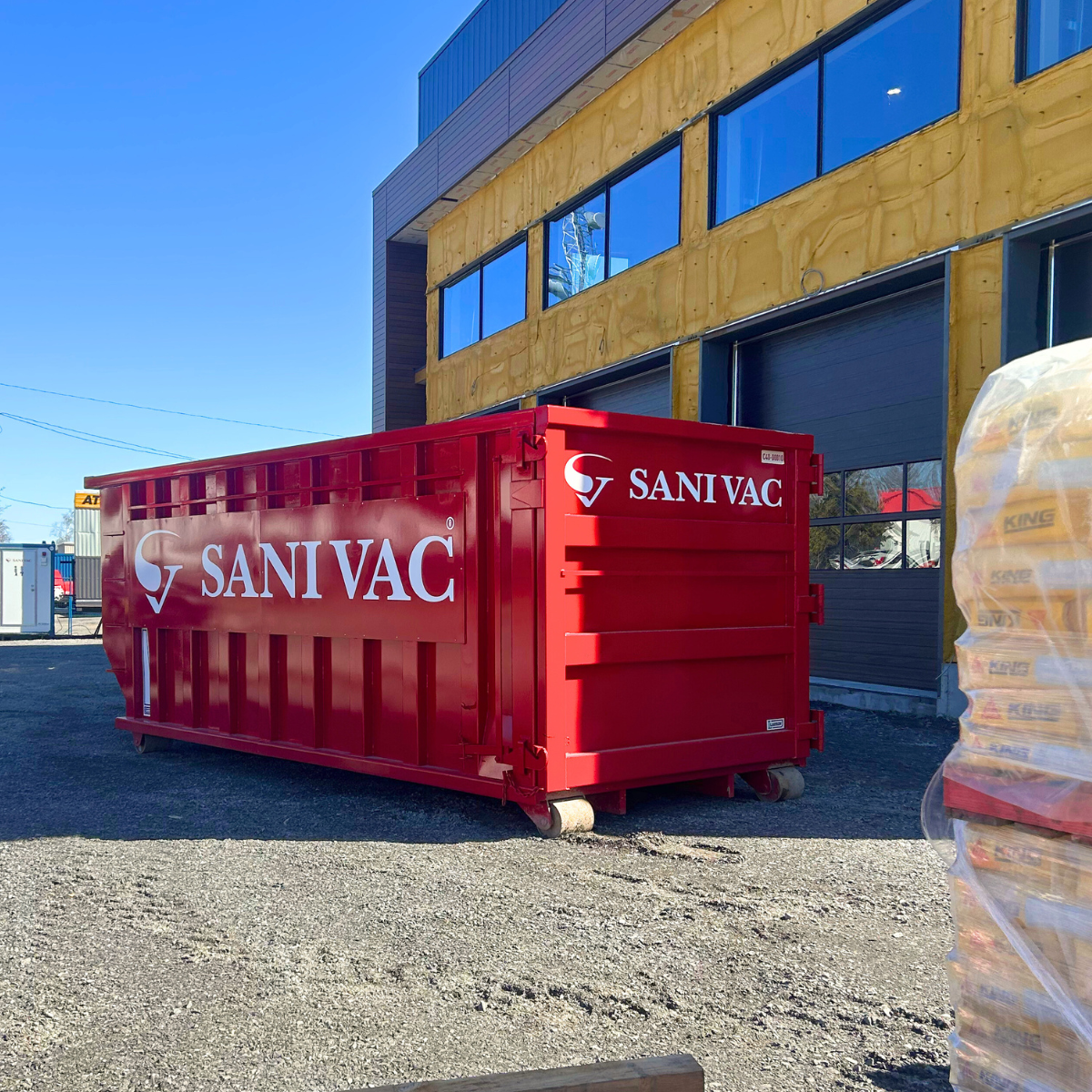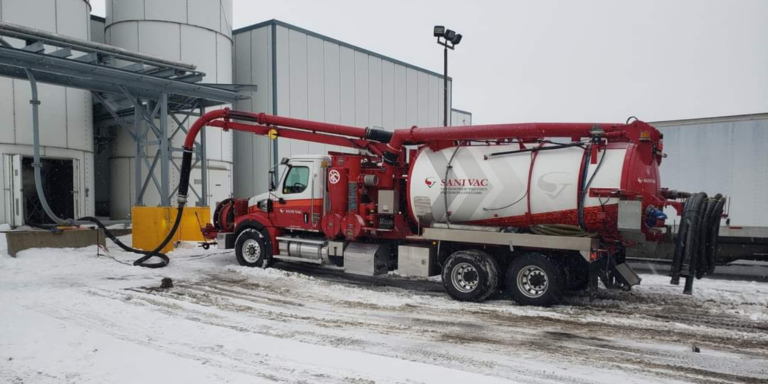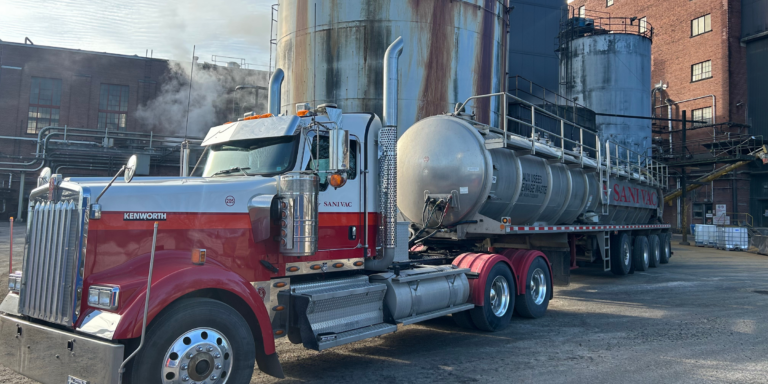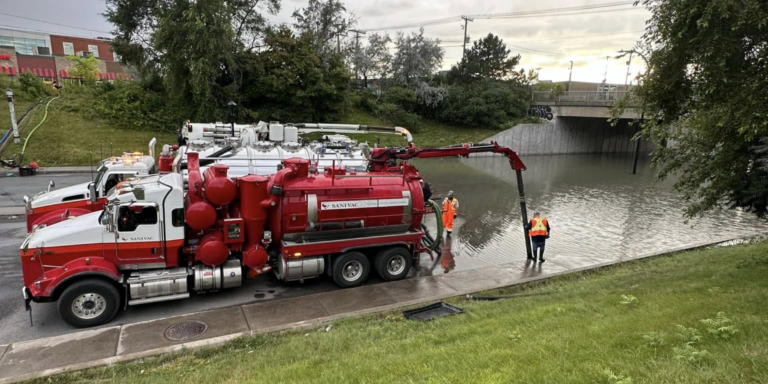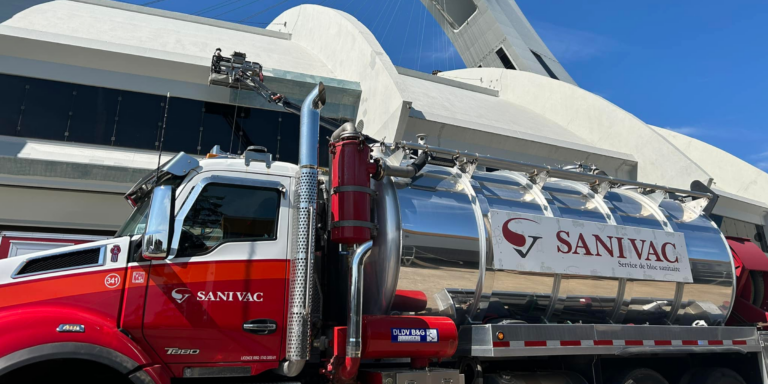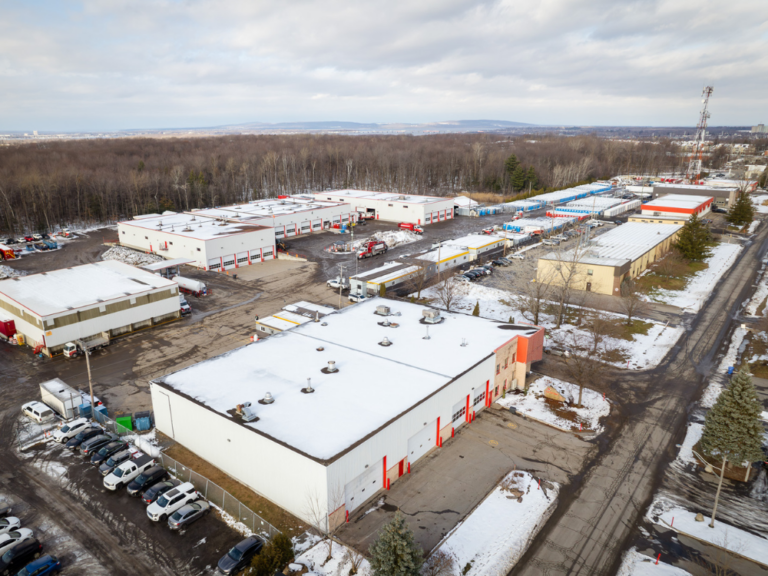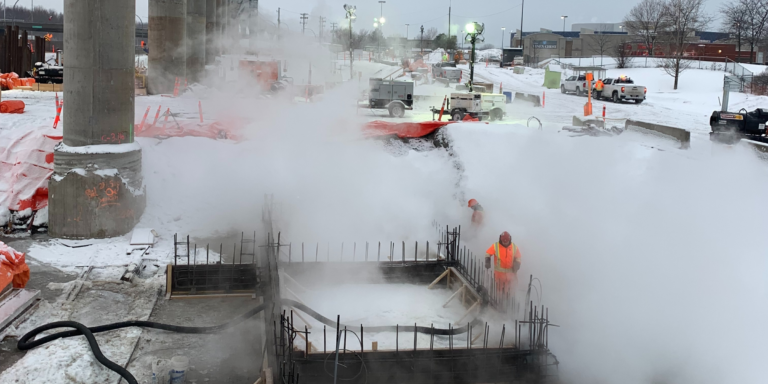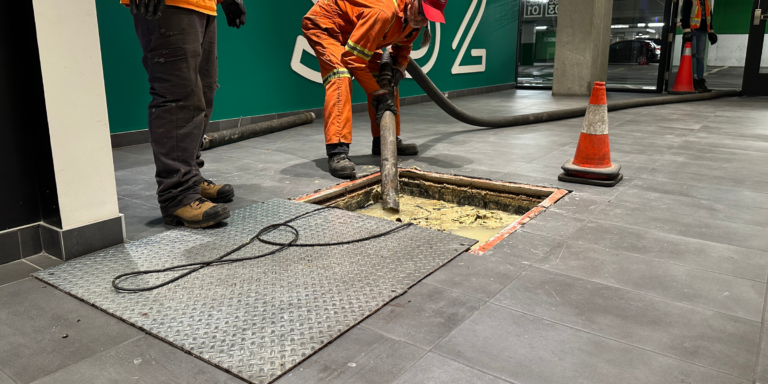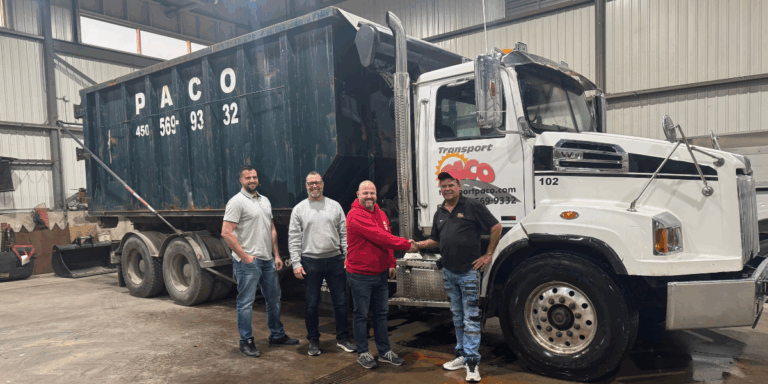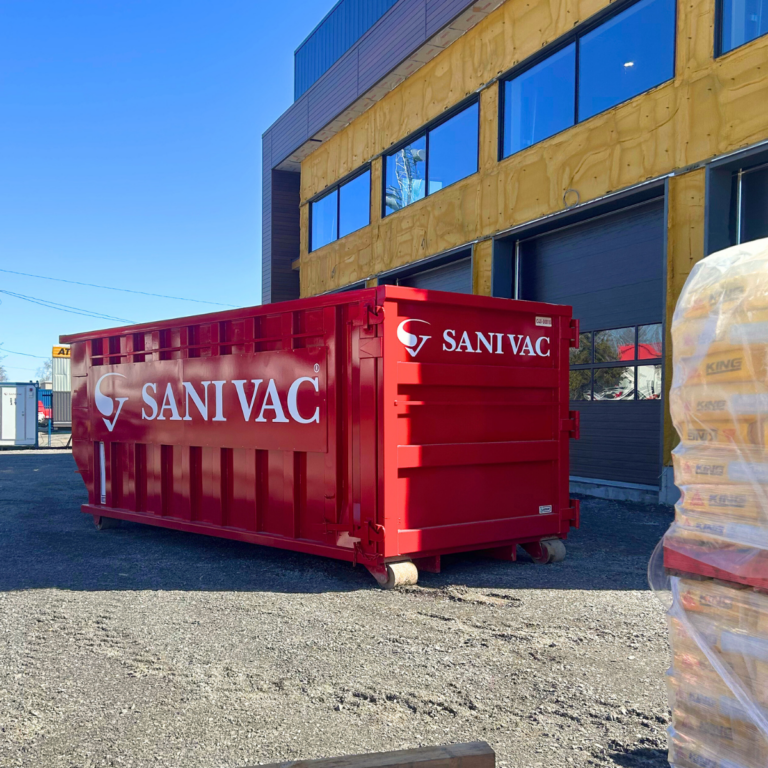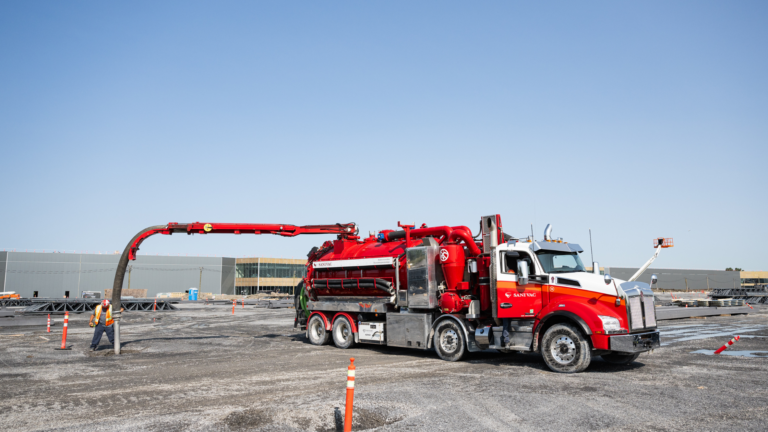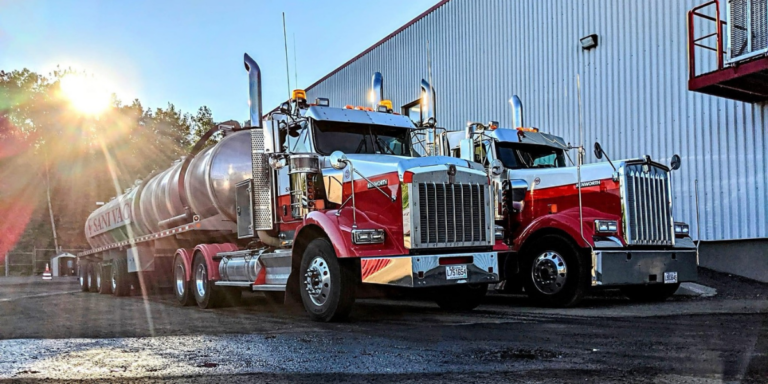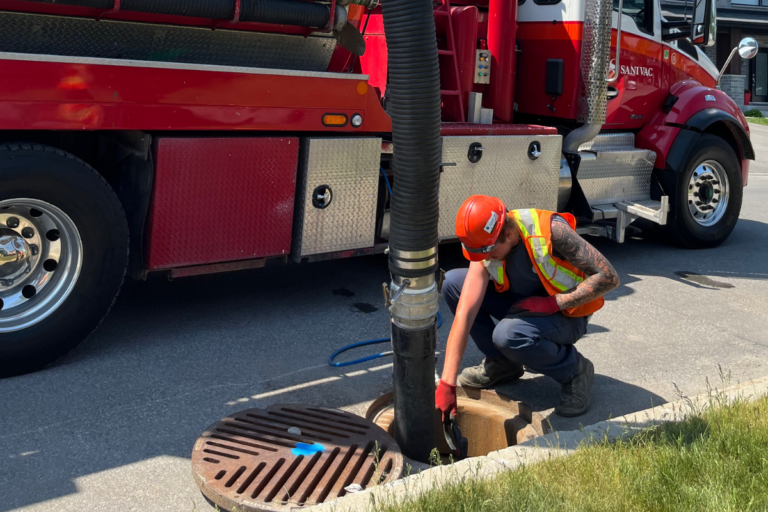What Can You Throw in a Sanivac Container?
Whether you’re preparing for a construction project, a home renovation, or a major cleanup, one question comes up often when it’s time to rent a container: What am I allowed to put in it—and what’s off-limits?
It’s not just a technicality—knowing the rules ahead of time can save you a lot of trouble.
At Sanivac, we believe clarity from the start is key. Understanding what materials are permitted or restricted not only helps you avoid extra fees and service delays but also supports more responsible waste management. This article walks you through which types of waste are accepted, which require special handling, and which should never be placed in a container. Whether you’re a contractor, property owner, or site manager, you’ll find all the essential information you need to plan your container rental properly.
What You Can Throw Away
Our containers are designed to handle a wide variety of jobs, from residential renovations to large commercial or industrial work. As long as materials are disposed of properly and in the appropriate container type, they will be managed safely and according to regulations.
Here are the types of waste you can place in a Sanivac container:
Construction & Demolition Debris
Construction sites often generate the following materials, which are accepted in our mixed-use containers (as long as they’re free of prohibited substances):
- Wood, drywall, gypsum from walls, ceilings, or flooring
- Brick, ceramic, concrete (in limited amounts)
- Trim, window and door frames, other finishing materials
-
Non-hazardous insulation (excluding asbestos)
Residential & Bulky Waste
During a move or major cleanup, many everyday items can go into a rental container:
- Used furniture like sofas, armchairs, and tables
- Mattresses, carpets, curtains, box springs
- Non-food dry waste, cardboard boxes, miscellaneous items
-
Appliances without refrigerant gas (washer, stove, etc.)
Yard Waste (limited)
Organic materials like garden waste can be added in small quantities, depending on the container:
- Fallen leaves, trimmed branches, hedge clippings
- Dry grass, roots
- Limited amounts of soil or gravel, depending on the chosen container size
Special Materials (on approval)
Some materials require special handling and dedicated containers. These must be discussed and approved with our team in advance:
- Asphalt shingles (only in a dedicated container)
- Dense materials like soil, stone, concrete, or asphalt
- Drilling mud from geothermal or well projects
-
Contaminated soils or materials (accepted only upon prior validation)
Materials You Cannot Throw Away
While Sanivac containers are built to accommodate a broad range of debris, certain materials are strictly prohibited. These restrictions are in place due to safety concerns, regulatory obligations, or processing limitations.
Improper disposal of restricted materials may lead to:
- Sorting or refusal fees at treatment centers
- Pickup delays
- Health or safety hazards for our staff
-
Environmental non-compliance
Below are the main categories of materials that should not be placed in a Sanivac container:
Hazardous or Regulated Waste
These materials require specialized collection and disposal processes:
- Paint, solvents, oils, fuels, propane
- Car batteries, chemical containers
- Gas cylinders, pressurized tanks
-
Toxic products like pesticides or fertilizers
Biohazardous or Sanitary Waste
These present specific risks to public health:
- Medical or biomedical waste (needles, soiled bandages, etc.)
- Expired or decomposing food
- Medications or pharmaceutical products
- Animal carcasses or organic remains
Other Problematic Waste
Even non-hazardous materials can be problematic due to disposal or safety concerns:
- Appliances containing refrigerant gases (fridges, AC units, freezers)
- Unsealed liquids or bulk substances
- Untreated tanks, drums, or barrels
-
Contaminated soil not previously declared or approved
Why These Restrictions Exist
Waste management follows strict environmental regulations. Each type of material must be processed at an appropriate facility under proper transport conditions. By respecting these guidelines, you help ensure responsible disposal and avoid:
- Extra fees or penalties
- Container immobilization on-site
-
Safety risks for drivers or recycling center staff
Our team is available to assess your needs and offer alternatives, such as sealed containers, vacuum pumping services, or specialized pickups.


